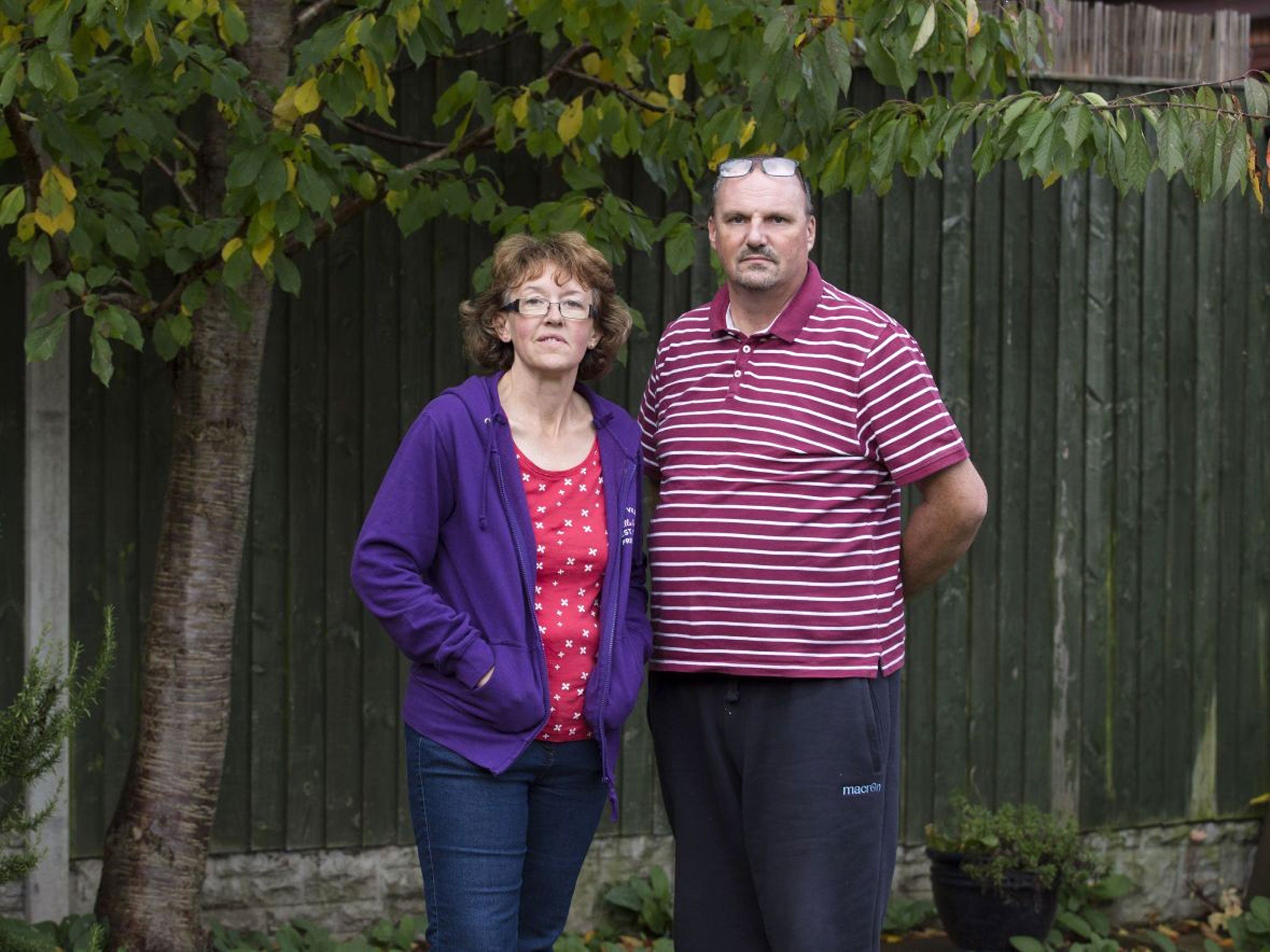British couple could lose £50,000 after investing in Harlequin Property
Andy and Michaela Oates have to pay for investment schemes they believe they should never have been sold - and that could now swallow their entire pension savings

A couple claim they are being "bled dry" by a catch-22 situation in which they have to pay for investment schemes they believe they should never have been sold – and that could now swallow their entire pension savings. Because they bought into what proved dodgy property investments through a self-invested personal pension (Sipp), they must continue to pay expensive administration charges.
It means they've been let down twice by the financial services industry as their nest-egg disappears.
Andy Oates, 48, said it's only because his wife Michaela is "as strong as an ox" that the couple haven't split up, as they try to cope with the worry caused by following advice to invest £100,000 in two risky overseas schemes.
They invested in Harlequin Property and another foreign property scheme in 2012 through what they believed was an independent financial advice (IFA) firm called Tailormade.But Harlequin took £400m from UK investors and then failed to build all but a handful of the properties that were supposed to provide returns. It is currently the focus of a two- year criminal investigation by the Serious Fraud Office. The other scheme stopped paying the couple any income in January 2014.
"When I got wind that there were problems with Harlequin, I started to feel at rock bottom as I knew I would be in trouble if my pension was lost," said Mr Oates. "There were dark days when I thought it wasn't worth carrying on. It eats away at you constantly, worrying about what's waiting in the inbox."
The couple were introduced to Tailormade by a local adviser and friend of 20 years who ran a Lancashire-based IFA with his girlfriend.
Mr Oates says his former friend has refused to speak to the couple since their investments got into trouble. "My wife even went round to their house to try and get answers but they refused to open the door," Mr Oates said.
Tailormade entered liquidation in September 2013 because it could not afford to pay claims against it from hundreds of angry Harlequin investors. Three of its directors have been fined almost £300,000 by the Financial Conduct Authority for mis-selling and banned for life from working in financial services.
The law firm Regulatory Legal, which acts on behalf of a group of Harlequin investors, claims that hundreds of advisers got rich selling these risky investments, which paid up to 15 per cent commission. The schemes are now unwilling or unable to return investors' money.
But the financial problems of the Oates haven't stopped there. Because they invested through a Sipp, they have to pay ongoing admin charges to another firm, Guardian SIPP. These charges, which they would otherwise have paid from the returns on their investments, must now be found from what little savings they still have. "They are bleeding us dry," Mr Oates said.
Sipp providers holding Harlequin are set to earn as much as £17m in fees from thousands of investors over the next 10 years, reckons Regulatory Legal.
Guardian SIPP has even begun legal proceedings against some Harlequin investors for non-payment of these fees.
The Financial Services Compensation Scheme (FSCS) has valued Harlequin investments at nil in its redress calculations. It has said it will compensate investors, but only up to the usual investment limit of £50,000 – which means the Oates will lose half their investment.
In the meantime, because the investment schemes have not been formally closed, Guardian SIPP expects its admin fees to be paid.
But the Oates, and other investors, may have a get-out clause. In a letter to investors, Guardian SIPP said it is "liaising with HMRC/FSCS" to allow individual investors to buy their investments back from the Sipps, and so avoid paying mounting fees.
Guardian SIPP stressed that talks were only at an "exploratory stage". First a decision would need to be hammered out between itself, the taxman and the FSCS on the value of the investments.
Whatever the outcome, the Oates intend to pursue Guardian SIPP for the rest of their capital, above the £50,000 that the FSCS may pay out. Their lawyers argue that the firm had a duty of care to do better due diligence on where they put their pension, and warn them of the dangers – claims that Guardian and other Sipp providers strongly deny.
The Financial Conduct Authority has so far focused its censure on financial advisers who sold Harlequin, not pension providers.
Mr Oates is adamant, however: "It won't take long before someone take tragic action, but that doesn't stop people like Guardian putting untold pressure on us all."
He is clear about where most of the blame lies. "If it wasn't for my IFA and friend of 20 years having introduced us to Tailormade, when in my mind the commission bug hit them, I wouldn't be in this mess."
The IFA has failed to respond to repeated requests for comment, as has Guardian SIPP. But in its letter to investors, Guardian said its services are charged at a fixed fee and are "not reliant upon the performance of the investments".
Subscribe to Independent Premium to bookmark this article
Want to bookmark your favourite articles and stories to read or reference later? Start your Independent Premium subscription today.

Join our commenting forum
Join thought-provoking conversations, follow other Independent readers and see their replies